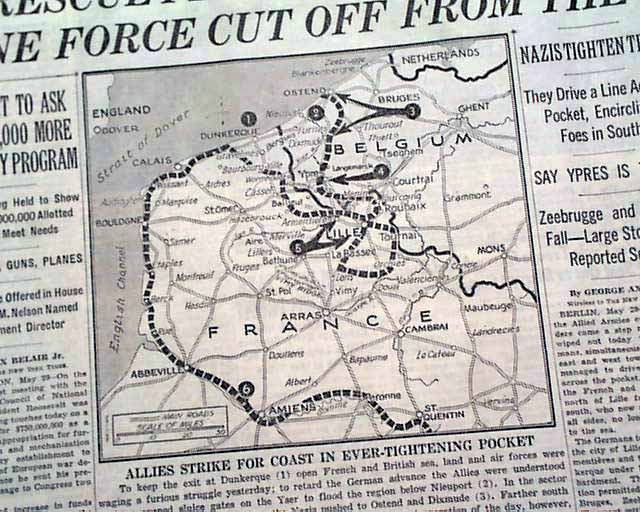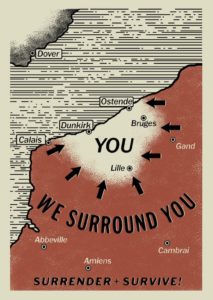By Greg Johnson
John William Waterhouse, Diogenes, 1882, detail
Audio Version: To listen in a player, click here. To download the mp3, right-click hereand choose “save target or link as.”
What’s wrong with cosmopolitanism?
The short answer is: nothing, if cosmopolitanism is properly understood. But a much longer answer is necessary, of course, because cosmopolitanism is almost never properly understood.
Cosmopolitanism means that the whole world (cosmos) is one’s hometown (polis), i.e., that one is a citizen of the world. The term originates with Diogenes of Sinope, the founder of Cynicism. When asked about his hometown, Diogenes did not claim to be a citizen of Sinope but a citizen of the world (kosmopolitês). Diogenes’ answer follows from the basic principle of Cynicism, which is to reject living according to socialconventions, which are many, varying from time to time and place to place, and to live one’s life according to nature, which is unchanging and common to all. (The Cynics were cynical only about convention. Toward nature, they were reverent.)
Cosmopolitanism presents itself as a statement of fact—“the cosmos is my polis”—but it is actually just a statement of an aspiration. Nobody is really at home in the whole universe. Indeed, we are seldom at home in the next town or country over. To be at home is to be part of the many particular human worlds that we call cities, regions, cultures, and nations. To be at home somewhere means that the place is familiar to you and that you can understand the people around you. Home is a familiar, intelligible, comfy place.
There are many reasons to leave one’s place of birth: war, natural disasters, scarcity, opportunity, adventure, etc. But in such cases, people merely trade one particular home for another. They pull up roots and put them down somewhere else. They work to familiarize themselves with their new home and to establish mutual understanding with their new neighbors. They remain earthlings.
The cosmopolitan gesture is different. It is not a search for a new place to put down roots. It is an aspiration to deracination, to rootlessness. It is an attempt to sever one’s connection with one’s actual home and step into a bigger world—the biggest possible world—the whole world. It expresses a desire to kick free of the Earth and float through the cosmos. Cosmopolitans are not earthlings but space cadets.
But nobody is at home everywhere. Nobody is familiar with the whole world. Nobody is comfortable everywhere. Nobody can understand all the people of the world, or be understood by them. Thus there are no actual citizens of the world. Thus cosmopolitanism is merely an aspiration. A cosmopolitan is just an alienated or disgruntled citizen of somewhere, a misfit who thinks that the misfits of the world constitute a global community which he wishes to join.
Cosmopolitans say they represent the common interests of the global community. But in fact, they constitute a community of their own, a community that has only one thing in common: alienation from and loathing for the real communities its members aspire to leave behind. And yet these cosmopolitans also wish to rule over the rest of us. But we have to ask: why is it in our interest to be ruled by people who despise us? Shouldn’t we want leaders who feel loyalty and love for us instead? Which sort of leadership is more likely to be corrupt and tyrannical? Which is more likely to produce good government?
If the citizen of the world is a bogus notion, what makes the idea of cosmopolitanism even conceivable?
First, there is the existence of a common objective world. Opinions are many, but reality is one. Cultures and worldviews are many, but reality is one. And if reality is one, then there is one truth about reality as well. And if there is one truth, then a multiplicity of opinions and worldviews simply has no warrant, no ground, no reason to be taken seriously. The cosmopolitan aspires to be a citizen of the sunlit objective world, not the many different caves of collective opinions.
Second, there is the existence of reason, which makes it possible to discover and communicate objective truths about objective reality. The various academic disciplines, for example, are genuine cosmopolitan communities, in which people who are rooted in many languages and cultures create a common language and forums of communication in order to cooperatively investigate various realms of objective reality. Why can’t all of society be like academia?
Third, meritocratic enterprises like businesses, sports terms, and orchestras compete for the best talent regardless of race or national origin, so why not structure all of society that way?
Fourth, the market economy, unless trumped by national interests, is inherently global and globalizing. If there is one global market, there will be one global price for each specific product—including types of labor—regardless of language, culture, and nationality.
Fifth, what grants cosmopolitanism a moral and political imperative is the existence of genuine global interests, a global common good that trumps more particular national interests. Global collective interests include protecting the planetary ecosystem from destruction by mankind, protecting the planet from collisions with comets and asteroids, preserving human biological and cultural diversity, and maintaining peaceful relations among nations and tribes. Securing these goods could license nations standing for the global community to coerce free-riders or violators to bring them into alignment with the welfare of the world.
Sixth, nobody would entertain the ambition of being a cosmopolitan without first feeling alienated from the polis to which he actually belongs.
Finally, cosmopolitanism is indirectly promoted by individualism. Global collective interests may crush more particular collectives from above, but individualism dissolves them from below. Individualism upholds the autonomous individual as the moral ideal, denigrating collective identities and unchosen obligations to family or fatherland. The radical individualist is, therefore, rootless, and although he has no special feeling of attachment or obligation to any community, even a global one, he is a de facto cosmopolitan, because political power has to reside somewhere, and once all more particular attachments have been severed, the buck stops with global government.
There are two senses in which ethnonationalism, as I define it, is a cosmopolitan position.
First, I believe that it is meaningful to speak of a global common good, which trumps all more particular collective or individual interests.
Second, I believe that maintaining cultural diversity and peace between different peoples is best served by the principle of ethnonationalism, meaning the creation of sovereign homelands for all peoples who aspire to them. By contrast, all forms of multiculturalism, including imperialism, create easily avoidable forms of ethnic homogenization and ethnic conflict by forcing different peoples to share the same territory and system of government. Thus the “one world” government advocated by some cosmopolitans would maximize rather than minimize ethnic homogenization and ethnic conflict, both of which are contrary to the common good of the world. Thus ethnonationalism serves the legitimate aims of cosmopolitanism better than global government would.
From an ethnonationalist point of view, what’s wrong with most of what passes for cosmopolitanism today?
First, many of the global interests to which we are supposed to sacrifice national and individual interests are simply bogus. For instance, the prevalent cosmopolitan view is basically global liberalism: all human beings have “rights” simply in virtue of being human; these rights trump all considerations of identity, such as race, culture, religion, and nationality; and these rights must be enforced equally and impartially across the globe. This means, at minimum, the erasure of borders and national sovereignty. Moreover, Left-liberal cosmopolitans believe that we have rights to equal living conditions. This means global welfare.
Of course, since people are not all equal, this sort of liberal cosmopolitanism leads to terrible injustices. Economic globalization means that Third World farmers will lose their markets to First World agribusinesses, while First World factory workers lose their jobs to Third World sweatshops. Open borders mean a one-way flow of migrants and refugees from the Third World to the First World. Global welfare means a one-way flow of wealth from the First World to the Third World. Such policies can only destroy advanced nations but do nothing to uplift the backwards ones. Indeed, because the races are not equal, we can only equalize downward, by destroying advanced white and Asian civilizations.
Second, many cosmopolitan proposals to serve genuine global interests are ineffectual and even harmful. For instance, regardless of whether man-made global warming is real or not, arrangements like the Kyoto Protocol are no solution. It makes no sense for advanced nations to cripple their economies while developing nations, which contain the vast bulk of the global population, are left free to try to “catch up.”
The only way to avoid a whole host of ecological catastrophes and Malthusian traps is dramatic technological innovation, particularly in terms of energy. But not all nations are equally capable of contributing to such goals. Only the First World has the potential to save the planet, whereas unrestrained Third World growth will inevitably destroy it. Thus a far more sensible solution would be for the developed world to impose growth limits on the rest of the planet while devoting a significant percentage of First World GDP to technological research and development projects, the equivalent of dozens of Manhattan Projects and NASAs.
Third, cosmopolitanism is premised on a false view of human reason. Cosmopolitans like the Stoics and Kant argue that if all men are rational animals, then we can understand one another. And if we can understand each other, we can deliberate with one another about the best way to live together, which allows us to enjoy a measure of civic equality in a common political community. Thus if all men possess reason, all men can be part of the same cosmopolitan political order.
The fact that individuals and groups are not equal in their reasoning powers is not an impediment to this kind of cosmopolitan community. It just means that the cosmopolitan community will have to be hierarchical. With greater inequality comes greater hierarchy. But hierarchy can be intensified to the point that some people are in effect no longer part of the political community, meaning that they have no power to participate in government, no power to rule themselves. They are simply ruled over. Obvious examples include children, the mentally retarded, and the insane. But this category also includes foreigners with whom we cannot communicate. Where persuasion is impossible, social order can only be maintained by force.
This implies that people who cannot understand or agree with one another at all cannot really participate in the same political system. Thus they must either go their separate ways or accept one group simply ruling over the others. Such domination can be entirely benevolent, but it precludes any form of political participation on the part of the ruled.
The problem with basing cosmopolitanism on human reason is that objective reality is one, but human reason is many, simply because we think and communicate with language, and there are many different languages. If we share a common language, we can communicate and deliberate about how to live together in the same political system. But we cannot deliberate with people who cannot understand us. Thus sharing a common language is one of the necessary conditions for a political community.
The plurality of languages does not, of course, make cross-cultural understanding impossible. But it does make it very difficult and achievable only by a tiny, polyglot minority. This means that the more polyglot a society is, the less capable the populace is of self-government and the smaller the elite is that runs it. This means that a global government would be maximally elitist and undemocratic.
The plurality of languages has always stood as a stumbling block for cosmopolitan schemes. This is why cosmopolitans have advocated the creation of artificial languages to serve as universal means of communication. Esperanto is the most famous of these languages, but it is just one among hundreds. Esperanto, however, is nobody’s mother tongue. Any artificial language is learned as a second language, and each speaker understands it in terms of his primary natural language. Inevitably, he speaks Esperanto with a French or Spanish or Russian accent. Even mathematics depends for its meaning on the plurality of natural languages, and most matters cannot be expressed in mathematical terms in any case.
The glib inference that all men belong to a common community based on being “rational animals” has been overthrown by such thinkers as Martin Heidegger, Hans-Georg Gadamer, Michael Polanyi, Michael Oakeshott, Ludwig Wittgenstein, and Gilbert Ryle, to name but a few. All of these thinkers argue that reason is rooted in language and other social practices, which are forms of practical knowledge, insofar as they help us disclose and cope with reality. Practical knowledge, moreover, cannot be meaningfully articulated as sets of universal rules. We know much more than we can say.
If practical knowledge cannot be articulated and communicated in the form of universal rules, how is it passed on? We acquire it through belonging to a particular community, in which each new generation imitates its elders and refines its performances under their guidance. This process can be helped along by articulated rules of thumb. But they are merely rough abridgements of practical knowledge, not a substitute for it.
This means that reason is rooted in particular ethnic identities. Ethnic identity is one of the conditions that make knowledge possible. And there are many different ethnic identities. Being a “rational animal” does not, therefore, make us citizens of a single global community. Again, this does not mean that we cannot arrive at cross-cultural understanding. But, as I have already indicated, it is a rare achievement of elites.
The classical and modern conception of reason also presupposes a dualism between mind and body. Mind-body dualism, however, is not a tenable position. Within the phenomenological tradition, Maurice Merleau-Ponty has deconstructed mind-body dualism, showing that consciousness is corporeal, not a disembodied activity only accidentally associated with a physical body. But bodies are divided into biologically distinct races. Which implies that different races reason and relate to the world in different ways.
Phenomenologists simply evade this implication, but it is amply confirmed by empirical science, which demonstrates not just that races differ in terms of simple intelligence, but in terms of their relationships to time, causality, moral responsibility, empathy, and a host of other socially and politically relevant traits.[1] Reason, therefore, is not just culturally but racially differentiated. And unlike the cultural factors that differentiate reason, biological differences cannot be bridged by cross-cultural understanding.
Fourth and finally, cosmopolitanism is premised on a false view of human nature and thus on a delusional and inauthentic relationship to who we really are.
Human beings are biologically differentiated into races and sub-races. We are culturally, linguistically, and politically differentiated into tribes and nations. We have natural, normal, and healthy partialities for kin over strangers, our tribe over foreigners, our race over other races, etc. This natural preference for one’s own was long understood as the basis of political life. Plato divided the human soul into three parts: reason, spiritedness (thumos), and desire. For Plato, both reason and desire were universalizing, since he regarded human reason and human desires as the same for all peoples. Thumos can also attach itself to universal goods, but first and foremost it is love of one’s own, an attachment to particulars, and a willingness to fight for them.
Thumos, therefore, is the foundation of politics. For, as Carl Schmitt argued, the political is inherently about us and them. Thus the denial of thumos is the foundation of all individualist and universalist ideologies, global government schemes, and notions that society can be structured as a global marketplace, sports team, or academic community. But even the cosmopolitans who wish to abolish war and enmity simply reinstitute it hypocritically and on the sly by declaring war those of us who love our own. Ultimately, though, they are at war with human nature itself.
Even reason itself—our outlook on the wider world—is opened and structured by our racial and cultural specificity. This is true even for glib rationalists, radical individualists, and cosmopolitan lovers of “humanity,” which is merely an abstraction.
Thus cosmopolitans who sneer at patriotism and other “petty” attachments are deluded about and alienated from who they really are.
It should be noted, however, that not all advocates of cosmopolitanism are rootless, delusional, and inauthentic. Diaspora peoples and market dominant minorities—such as Jews, for instance—preach cosmopolitanism in order to make other groups blind to their specific identities and interests and maximally open to penetration, upward mobility, and domination by outsiders. But such cosmopolitans remain rooted in their own tribal identities and interests, and they do not intend to dissolve themselves in the cosmopolitan melting pot.
Both the delusional and deceptive types of cosmopolitans are, however, phonies and fakes.
There is no such thing as global, cosmopolitan man. But there are global, cosmopolitan interests. So how do we secure them? The welfare of the world is real, and it is too important to be entrusted to the delusional, alienated, and inauthentic—or to parasite tribes and rootless elitists who preach cosmopolitanism but practice ruthless selfishness. What kind of men, therefore, can be tasked with minding the welfare of the world?
First and foremost, they must be authentic, meaning that they must own up to their racial and cultural specificity. They must also demonstrate normal moral sentiments by proving their loyalties and discharging their obligations to the more particular groups to which they belong. But, by the same token, they must also demonstrate a genuinely broadened moral outlook and a sincere attachment to the welfare of the world, to which more particular interests must be sometimes subordinated. Such nested identities and concentric circles of attachment are, however, perfectly natural and normal, although the widest cosmopolitan sense of identity and obligation is naturally the rarest and most difficult to achieve.
In his Ernst and Falk, Gotthold Ephraim Lessing argued that the proper duty of the head of a household is to care for his family. If, therefore, he looks out for the welfare of other families, he is going above and beyond his specific duty. The duty of a religious leader is to care for his flock. If, therefore, he concerns himself with the followers of another religion, he is going above and beyond his specific duty. The proper duty of a citizen or a statesman is to look out for the welfare of his society. Thus someone who concerns himself with the welfare of the world is going above and beyond his duty.
But the welfare of the world is the most serious business of all. Therefore, we cannot simply leave it to hobbyists who, in their spare time, go above and beyond their specific duties. We need someone to make caring for the welfare of the world his proper duty. Lessing argues that this is the duty of the Freemason. Lessing makes it clear, however, that he is not speaking of Freemasonry as it actually existed. Instead, he is arguing that something like Freemasonry needs to be invented. These sorts of Freemasons, however, are not rootless cosmopolitans. They recognize that political diversity is inevitable and world government is impossible. Thus, to care for the welfare of the world, they form an international fraternity that helps the different nations of the world cooperate to serve the global common good.
Such institutions for pursuing global interests in the absence of a world-state actually exist. Examples include non-sovereign intergovernmental organizations like the United Nations and the European Union; military and political alliances like NATO; summit meetings of the leaders of major powers, like the Group of Eight; and treaties like the Kyoto Protocol. All of these mechanisms cultivate contacts between the leadership strata of different nation-states and coordinate governmental actions to address global issues. Of course from an ethnonationalist point of view, all of these examples have serious problems. But they are nevertheless models for pursuing legitimate global interests by sovereign nation-states.
The abiding problem of all such organizations is preventing them from falling into the hands of a merely selfish cosmopolitan elite. This risk can be lowered but not eliminated by greater realism about the racial and cultural differentiation of reason and human nature in general. Ultimately, though, the greater risk will always be to ignore the welfare of the world than to try to secure it.
Note
1. Michael Levin’s Why Race Matters: Race Differences and What They Mean (Westport, Conn.: Praeger, 1997) is the best summary of scientific literature on biologically based racial differences and why they matter.

















